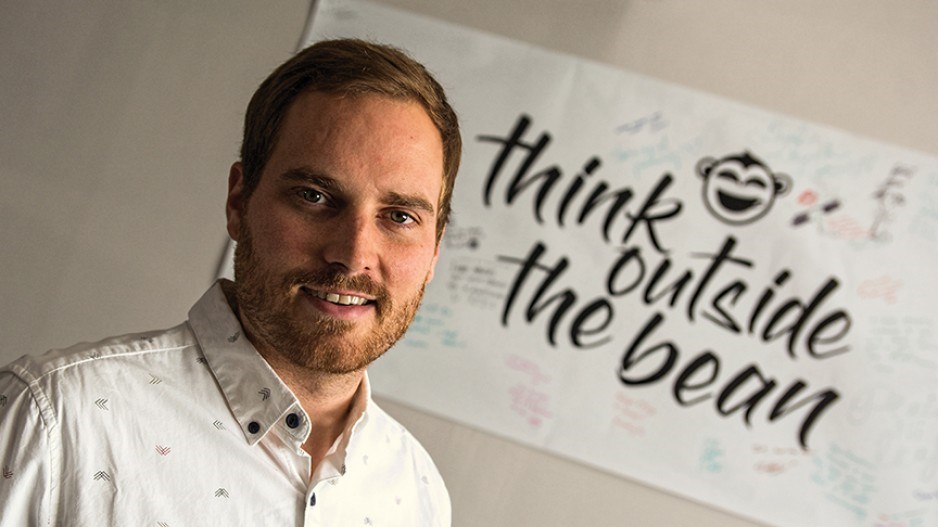Vancouver’s reputation as a tech town might be growing, but the city’s increasingly diverse food sector is also ramping up efforts to attract investor interest.
“The Vancouver scene, in terms of brand-created foods and the restaurant side of things … is booming and highly diversified,” said Max Rivest, CEO and co-founder of coffee leaf tea company Wize Monkey. “The food business is inherently a slower creation and a slower founding and sales cycle relative to technology, and obviously tech is just instantly scalable.”
But B.C.’s food sector faces the same challenges that other small-business owners in the province are grappling with, including labour shortages and limited access to capital investment.
“A lot of people are just investing in technology and real estate in Vancouver, and that is the challenge in the food business,” said Rivest. “Investors will say, ‘I need 10 times return in five years,’ and being a food business going from zero revenue to half a million is extremely difficult.”
Wize Monkey, which has been operating for nearly five years, started as co-founders Rivest and Arnaud Petitvallet’s business school final project. Its products are now in more than 800 stores across North America, including Sprouts Farmers Market, Whole Foods Market and London Drugs.
Yet the success of Wize Monkey and other ambitious food and beverage endeavours in the city was seeded and cultivated by the University of British Columbia’s (UBC) Feeding Growth workshop, which provides a crash course in the nuances of the food business.
“The main thing we took away from [Feeding Growth] was that the food business is a lot more complex than you think, and there are so many little details in terms of the value chain and working with retailers and the grocery channel in general,” said Rivest.
“We got a good introductory understanding of how all those things are structured and how to enter a store and pitch a product and how to keep it on the shelf and make sure you have enough sales per month to justify the placement.”
Spearheaded by Véronik Campbell, academic co-ordinator for the Centre for Sustainable Food Systems at UBC Farm, Feeding Growth is primarily “an education and community-building initiative supporting British Columbia-based, progressive food businesses,” according to Campbell.
“I see Feeding Growth and other organizations like Local BC or other food-processing associations as core entities to structure directed dialogue and the problem-solving conversation.”
In essence, Feeding Growth is a series of workshops that provides progressively social, ethical and environmental packaged goods companies with information, hands-on learning and a network of executives, retailers, investors and other highly connected food-business workers.
“We don’t ever want [Feeding Growth] to be this big machine that has a hard time turning in the direction of the tide.… It is sort of part of the core of what [Feeding Growth] is and what it does to be proactive and responsive.
Feeding Growth has somewhat just adapted to hearing and addressing challenges on a year-to-year basis.”
And those challenges continue to push small-business perseverance and integrity in a big-fish world.
“Regulations around labelling are changing rapidly,” said Campbell. “There are a lot of claims for natural, progressive or organic businesses, and now the government is being more stringent.
“For a small business that is growing that has always been claiming they are natural or organic, now these regulations are coming in full force … to make that decision of ‘Do I want to go big corporation or organic, or am I fair trade?’ These have been talked about a lot for the past few years.”
Yet many small food businesses are finding value in remaining small.
“I think there has been a lot of acceptance and understanding in what we are trying to do as a values-based business,” said Ben Ernst, co-founder of Earnest Ice Cream.
Ernst took the Feeding Growth workshops after launching the company in 2012 to learn more about the fundamentals of packaging, marketing and labelling in the highly regulated business. Earnest Ice Cream now has four retail stores in Vancouver and up to 30 wholesale customers.
But its values-based approach to smaller production cycles, reusable product containers and zero waste resonated among similar eco-conscious consumers that are shared with companies like Wize Monkey.
“Launching a business that focuses on local is something that people are really embracing right now,” said Ernst. “Being able to launch a brand with values that are really built into the business is something that people are very open to understand.”




